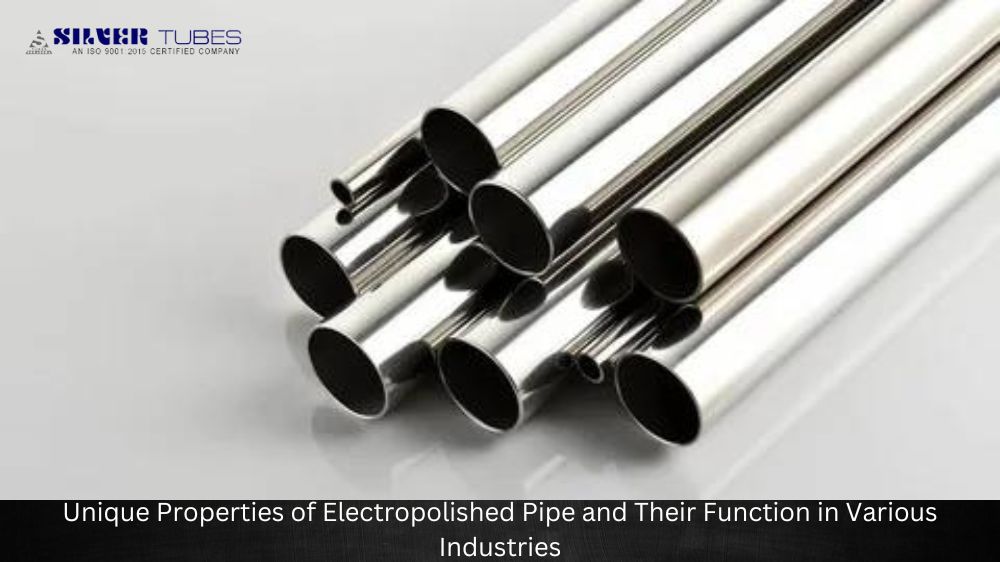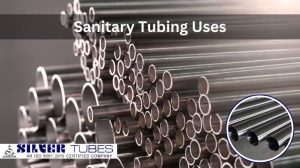Piping systems are crucial in many industries, and maintaining their efficiency and hygiene is paramount. Traditional pipes can accumulate rust and debris over time, causing blockages, leaks, and even contamination of their transport materials. This is where electropolished piping comes into play. Electropolishing is a process that removes surface contaminants and impurities, leaving behind a smooth, mirror-like surface. This surface has unique properties that make it perfect for various industries, such as pharmaceuticals, food and beverage, and marine applications. In this blog, we will explore the benefits of electropolished pipe and how it is used in different industries.
Properties of Electropolished Pipe
- The Electropolished Pipe is made from stainless steel treated with an electrical current.
- This process removes impurities from the surface of the pipe, resulting in a smoother, brighter finish.
- The electropolished pipe is more resistant to corrosion than the non-electropolished pipe.
- The electropolishing process also increases the strength of the pipe.
- The electropolished pipe is often used in food and beverage processing, as it is less likely to harbor bacteria.
- This type of pipe is also used in the pharmaceutical and semiconductor industries due to its high level of cleanliness.
- Electropolished pipe is more expensive than the non-electropolished pipe, but it has many benefits that make it worth the extra cost.
Applications of Electropolished Pipe in various industry
Pharmaceutical Industry
The pharmaceutical industry demands the highest purity and hygiene, and electropolished pipes play a critical role in achieving these standards. The mirror-like finish of electropolished pipes makes it impossible for bacteria and other contaminants to adhere to the surface. Additionally, electropolishing removes any irregularities on the surface of the pipe that can trap contaminants, ensuring that pharmaceuticals are not compromised. This property makes electropolished pipes ideal for use in producing and transporting medicines and drugs where even minor contamination can have severe effects.
Food and Beverage Industry
Like the pharmaceutical industry, hygiene is a top priority in the food and beverage industry. The smooth, clean surface of electropolished pipes eliminates the possibility of bacterial growth and makes cleaning and sterilizing the pipes easier. This property is critical in the production, transport, and storage of food and beverages, where contamination can cause foodborne illnesses, spoilage and changes in the taste and flavour of the products.
Marine Applications
In marine applications, pipes are exposed to harsh conditions, including saltwater and marine organisms. These conditions can cause traditional pipes to corrode, reducing their efficiency over time. However, electropolished pipes have excellent corrosion resistance, making them ideal for marine applications. Electropolished pipes’ smooth, mirror-like finish also helps reduce drag and improve the flow of fluids, making it an efficient solution for shipbuilding, offshore drilling, and the transport of fluids.
General Industry
Electropolished pipes are versatile and can be used in various industries, such as medical, chemical, and electronic applications. These pipes provide uniform wall thickness, increasing the strength and durability of the pipe while making them easier to install and transport. Additionally, the smooth surface of electropolished pipes minimizes fluid resistance and pressure drop, making them a cost-effective solution for various industrial applications.
Conclusion
In conclusion, electropolished pipes offer unique properties, making them ideal solutions for various industries. Their smooth, clean surface makes them resistant to contamination, providing a stable and hygienic transportation medium for pharmaceuticals and food products. Additionally, electropolished pipes are ideal for marine applications and offer a cost-effective solution for various industrial applications. With electropolished pipes’ unique properties, industries can ensure the quality and safety of their products while reducing maintenance costs and downtime.






